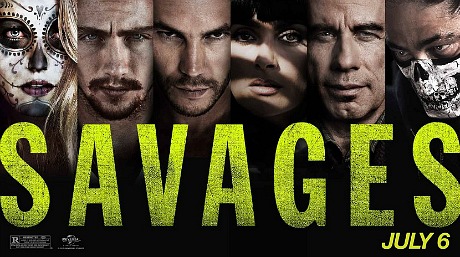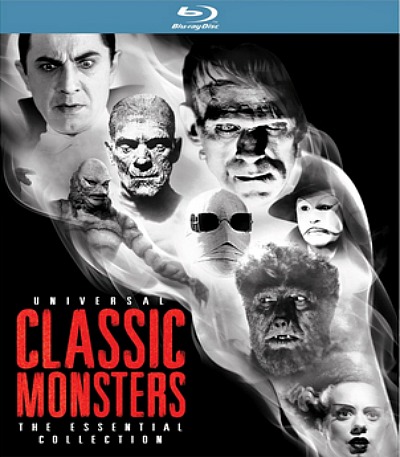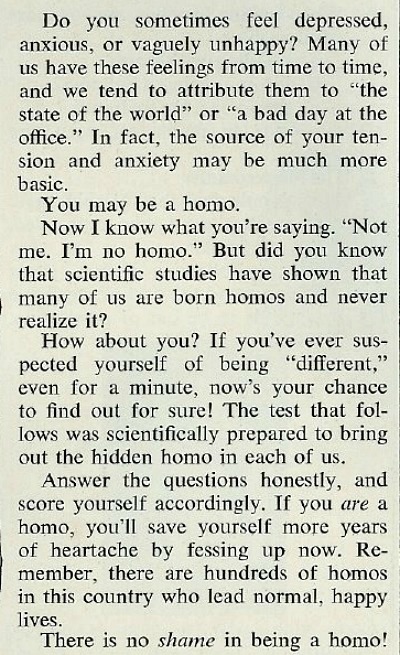I made a point of reading Don Winslow‘s “Savages” before catching Oliver Stone‘s film version last night, and I was fairly taken with it. I love Winslow’s tight sentences and smack-dab phrasings, and the way it reads like a screenplay. So despite the beating Savages has taken on Rotten Tomatoes and Metacritic, I was hoping for at least a modicum of satisfaction. Some of the book had to rub off.
To me, that didn’t happen. At all. I felt assaulted and trapped and underwhelmed all through Savages. Almost nothing but pique. The first thing I said to a friend as I left the theatre was “why did they even make this thing? Who could possibly like this or recommend it with any enthusiasm?”
I was “directing the movie” as I read Winslow’s book, of course, and in my version the action was fast and brutal, like in real life, but I didn’t wallow in it. And the actors didn’t “act” — they read their lines flat, fast and straight. They just about threw them away, which is what you more or less have to do when you’re dealing with “I think we’ve struck gold” and “I had orgasms — he had wargasms.”
Stone does the opposite, for the most part. He whips up the visual energy every which way, glossing and flashing it up like there’s no tomorrow. And flaunting the spilt blood, gougings, torturings. All you want is for the killing and the sadism to ease up a bit, for Stone to go the “less is more” route. A touch of suggestion, imagination…not a chance. And the three leads — Taylor Kitsch, Aaron Johnson, Blake Lively — drop their on-the-nose lines like spoonfuls of mashed potatoes on the kitchen floor, “acting” with their eyes and smiling too much and pretty much murdering the potential coolness at every turn. It’s too “on the nose duhh” in all kinds of pushy, flagrant ways.

Narration is almost always a bad idea, but especially so with an action film. Lively is the
narrator here, and her opening line — “Just because I’m telling this story doesn’t mean I’m alive at the end of it…it’s that kind of story” — is terrible. I bought Joe Gillis narrating his own Sunset Boulevard saga from the morgue, but Lively saying she may or may not be dead at the end made me want to spit on the carpet. Stop prepping me!
Thank God for those occasional “well, at least that worked!” moments from Benicio del Toro and John Travolta. Because I had a really rough time with Savages, and particularly with that awful ending, which smells of the worst kind of “holy shit, let’s throw it in reverse and spin it around so it doesn’t feel so dark” post-test-screening desperation. It’s one of the worst endings I’ve ever seen in my life — a shattering, major-league embarassment for poor Oliver, whom I’ve admired much of my moviegoing life, and a failing grade for Winslow right out of the gate.
Savages is about a couple of youngish, very flush Laguna Beach pot dealers (Kitsch’s “Chon”, Johnson’s “Ben”) somehow failing to grasp the obvious when a Baja crime cartel tells them they want to distribute their potent product and split revenues 80-20. Which basically means “game over” and “time to move to Indonesia” because the Mexicans are fiends who will chew them up and spit them out one way or the other. Travolta’s character, a corrupt DEA guy, explains that the cartel, run by Salma Hayek‘s “Elena” and enforced by Del Toro’s “Lado”, is basically Walmart and that “they want a Ben and Chon section on aisle three.”
The guys intend to make a run for it while pretending to play along, but Elena smells duplicity and orders their girlfriend Ophelia, a.k.a. “O” (Lively), kidnapped. And once that happens it’s war — theft, hijackings, frame-ups, burnings, counter-kidnappings, etc.
You know who should have narrated Savages? Benicio’s enforcer. That I would have accepted. It would’ve worked. I can hear the lines right now.
This “you’re going to be bought out” scenario is the same one presented to Warren Beatty‘s John McCabe in McCabe and Mrs. Miller (’71). The owner of a burgeoning brothel in the small mining town of Presbyterian Church, McCabe is approached by reps of the Harrison Shaughnessy mining company and basically told “if you don’t sell out you’re dead.” McCabe doesn’t take this seriously, and before you know it three hired guns have come to town to kill him. Robert Altman‘s film ends with McCabe being hunted down in a snowstorm as the townfolk try to put out a fire in a church. McCabe and Mrs. Miller doesn’t end happily or triumphantly, but it’s a helluva lot better than the finale in Savages.






